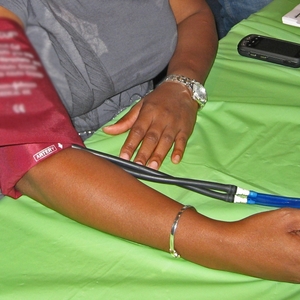Author Interviews, Breast Cancer, Cancer Research, Race/Ethnic Diversity, Vitamin D / 26.04.2022
Vitamin D May Protect Against Breast Cancer, Including in Minority Women with Low Vitamin D Levels
MedicalResearch.com Interview with:
Katie M. O’Brien PhD
Chronic Disease Epidemiology Group
National Institute of Environmental Health Sciences
MedicalResearch.com: What is the background for this study? What are the main findings?
Response: Vitamin D may protect against breast cancer. Although women of color have lower average vitamin D levels than non-Hispanic White women, few studies have considered the role of race/ethnicity.
In a sample of self-identified Black/African American and Hispanic/Latina women, we observed that vitamin D concentrations measured in blood were inversely associated with breast cancer, particularly among Latinas.
These findings indicate that vitamin D may protect against breast cancer, including among racial/ethnic groups with low average circulating levels.
(more…)




 Arman A. Shahriar
Medical Student, University of Minnesota Medical School Research
Consultant, HealthPartners Institute
Minneapolis, Minnesota
Arman A. Shahriar
Medical Student, University of Minnesota Medical School Research
Consultant, HealthPartners Institute
Minneapolis, Minnesota

























